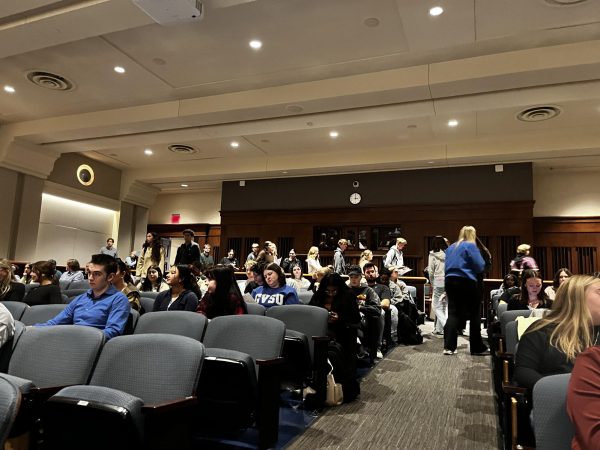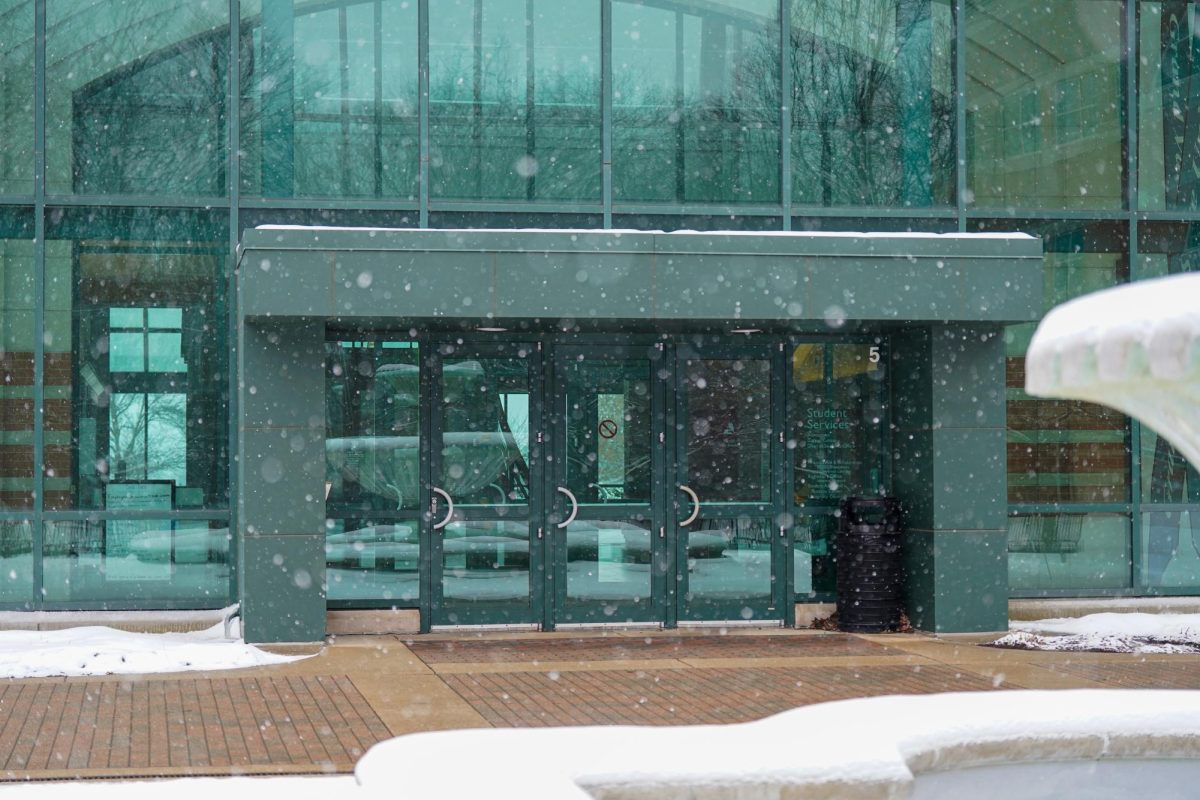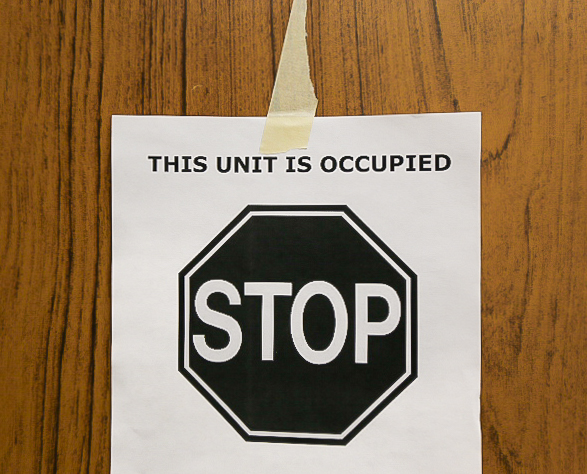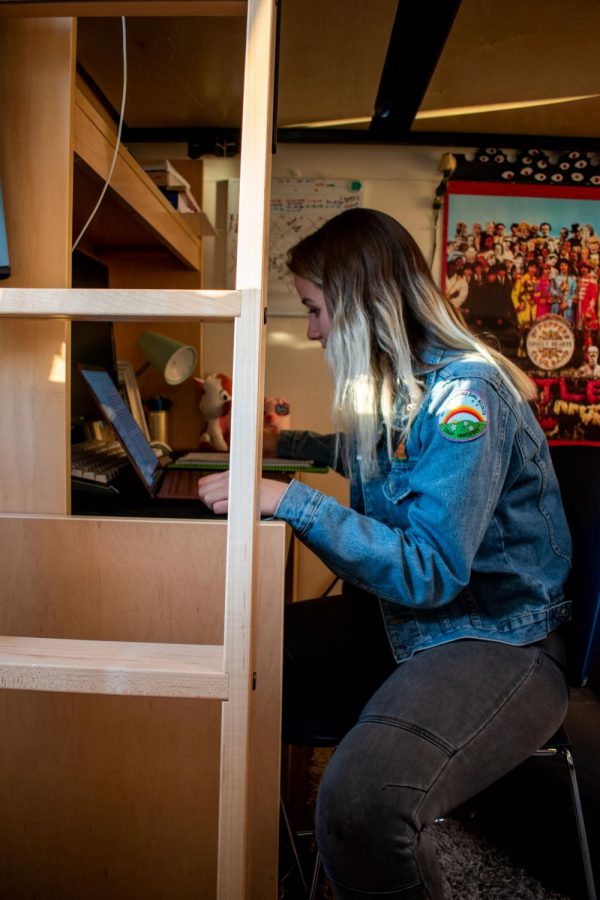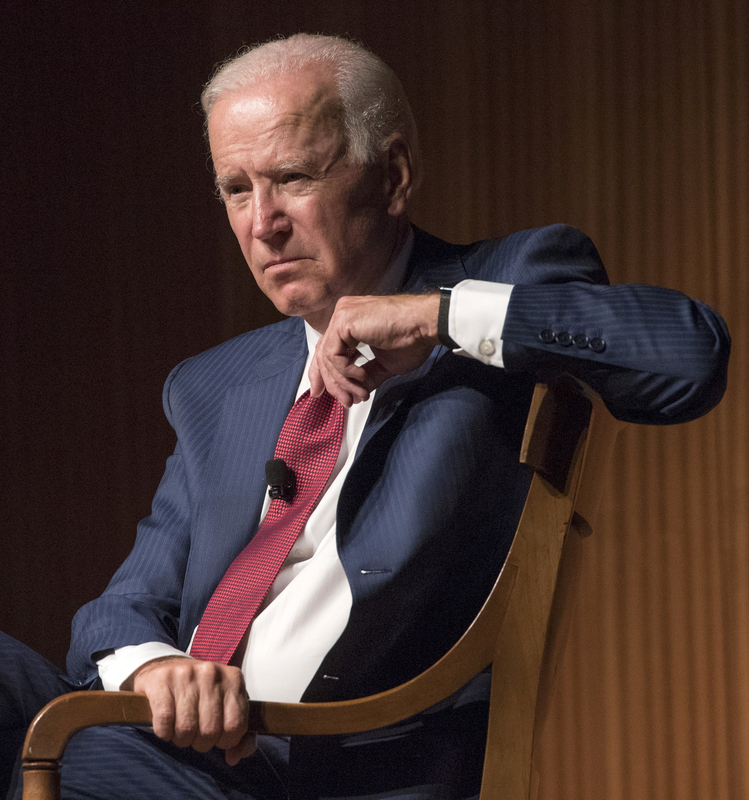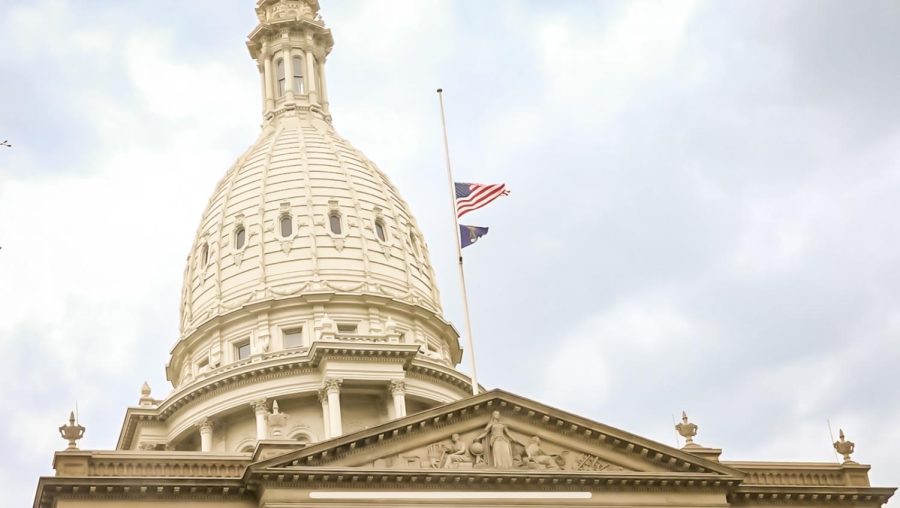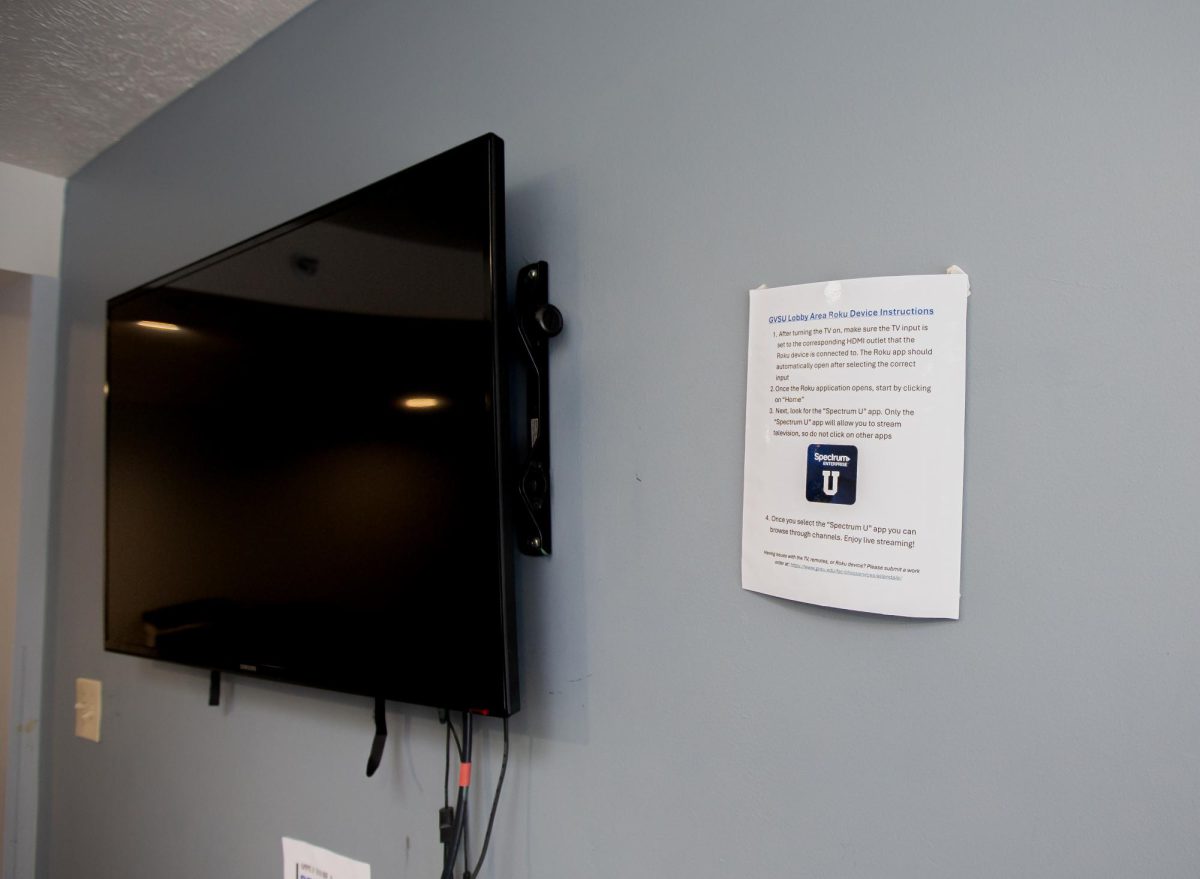The School of Criminology, Criminal Justice and Legal Studies (CCJ) at Grand Valley State University hosted a “Courtroom Conversations” judicial panel on Wednesday, Oct. 2. The forum featured judges from the federal, state and local levels, allowing students to gain a better understanding of justice-based issues from experienced sources.
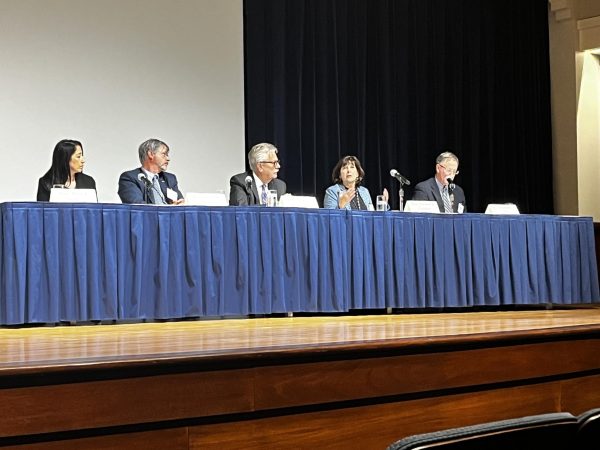
The event took place in GVSU’s Loosemore Auditorium at the Richard M. Devos Center in Downtown Grand Rapids. Students in attendance were able to engage with five judges working in Michigan courts at various levels, network with industry professionals and better understand the trials and tribulations of judiciary work.
The Criminal Justice Student’s Association (CJSA) and the National Criminal Justice Honor Society, Alpha Phi Sigma, assisted with planning and promotion for the forum, according to Patrick Gerkin, a professor within CCJ.
Judges on the panel included Chief Judge Hala Jarbou of the U.S. District Court, Chief Judge Scott Dales of the U.S. Bankruptcy Court in the Western District of Michigan and Chief Probate Judge
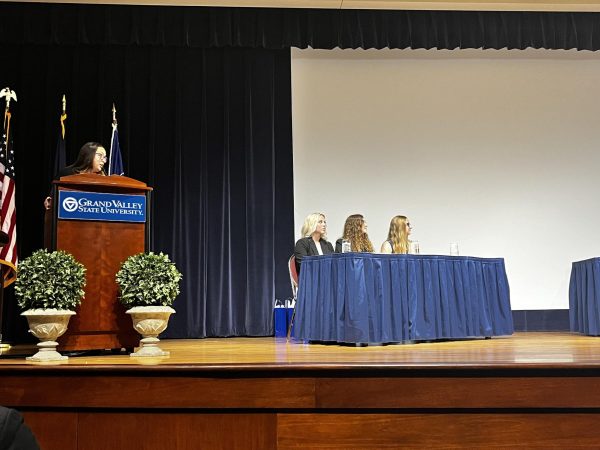
David M. Murkowski of the Kent County Probate Court. Other judges participating included Christopher P. Yates, a judge in the Michigan Court of Appeals for the 3rd District, and Patricia D. Gardner, a judge in the Family and Juvenile Court for the 17th Circuit Court of Michigan.
During the forum, three students sat on stage with the panel and pitched questions to the judges. The student panelists were CJSA President Melissa Jackson and Alpha Phi Sigma members Chloe Upton and Natalie Greenbauer.
Jackson said planning the forum and participating in discussions was an exciting experience.
“I absolutely loved being a panelist,” Jackson said. “When the idea of this event was presented to me, I was very quick to jump on the planning for it.”
Gerkin said the student turnout led to a successful, impactful event, and that from the initial pitch to the panel on Oct. 2, the forum took about a year in the making.
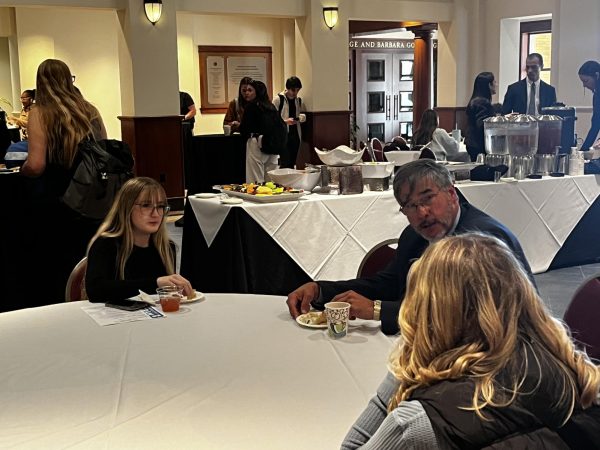
“The event was amazing,” Gerkin said. “We estimate that we had a student audience of approximately 115-120. Students (could) learn firsthand what it takes to become a judge, as well as what it’s like to perform this essential work. Many of the students stayed around after the event and enjoyed the opportunity to extend the conversation with our panel of judges.”
The forum’s inspiration spurred from faculty’s conversations with judicial figures and the judges’ passion to share their experiences with students. Many of the panel members had previously been guest lecturers in various criminal justice classes at GVSU.
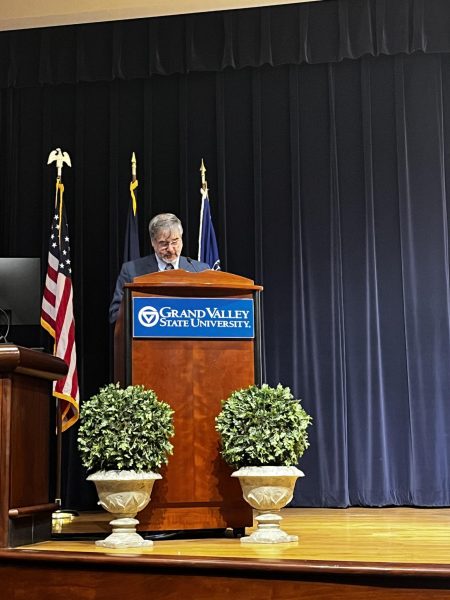
“The event was first pitched by one of our adjunct (faculty), Mike Ley, (who) is well connected with judges across West Michigan,” Gerkin said. “In his many conversations with judges, he noted that they shared a passion for talking with students and sharing their knowledge. After getting a positive response from the judges, Mike approached me and I said I would help him make it happen.”
Questions pitched to the judges covered a range of topics from experience, advice for students and technological innovations in the courtroom. Each of the judges had an extensive educational background and have been involved in the court system for a long time. All of the panelists expressed that they wouldn’t be where they are if it weren’t for the mentors in their lives.
Dales said his relationship with his mentor was the reason he became a court judge. He shared that he never thought he’d be a judge, however his mentor saw something in him that inspired his professional career.
“Mentors are terribly important,” Dales said. “If you can find a mentor, find a mentor. It took somebody that I trusted to see something in me (that) I didn’t really see in myself. (That’s what) brought me to apply (to be a judge).”
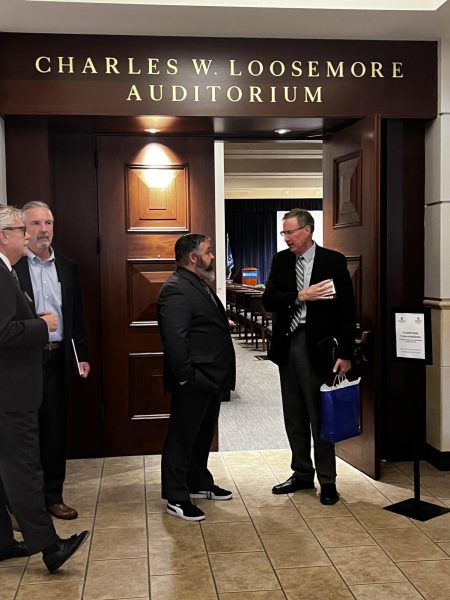
Murkowski has been the chief probate judge for the Kent County Probate Court for 17 years. Murkowski described his transition from being mentored to now being a mentor himself.
“(Being a mentor is) most fulfilling and it’s most rewarding,” Murkowski said. “You want to pass on that skill set that you developed. You want your employee and colleague to enjoy that skill set, and develop a skill set too.”
Murkowski and other judges encouraged students to sit in on court sessions and learn about the judicial process as early on in their studies as they can. The panel of judges recommended that students continue to increase their knowledge upon entering the workforce by discussing cases with other lawyers and judges, and seeking out educational opportunities.
“From a student perspective, this event was a great networking opportunity to connect with judges and get their perspective on what their process looked like for becoming a judge, (and) their insight on the questions that we had curated,” said Jackson. “Other students who attended (also) commented on how it was a great opportunity to hear (responses) from a judge’s perspective, while also being able to connect with them afterward.”
